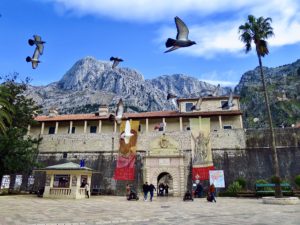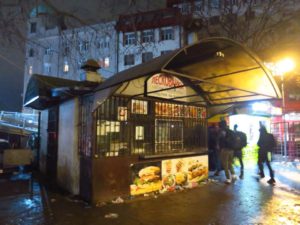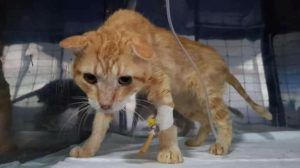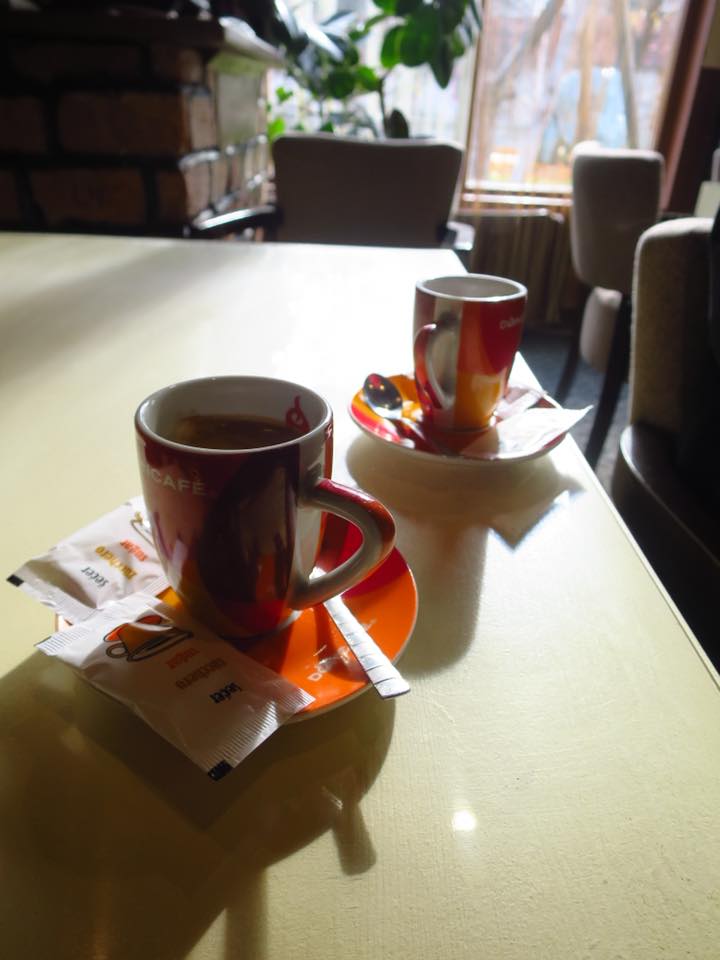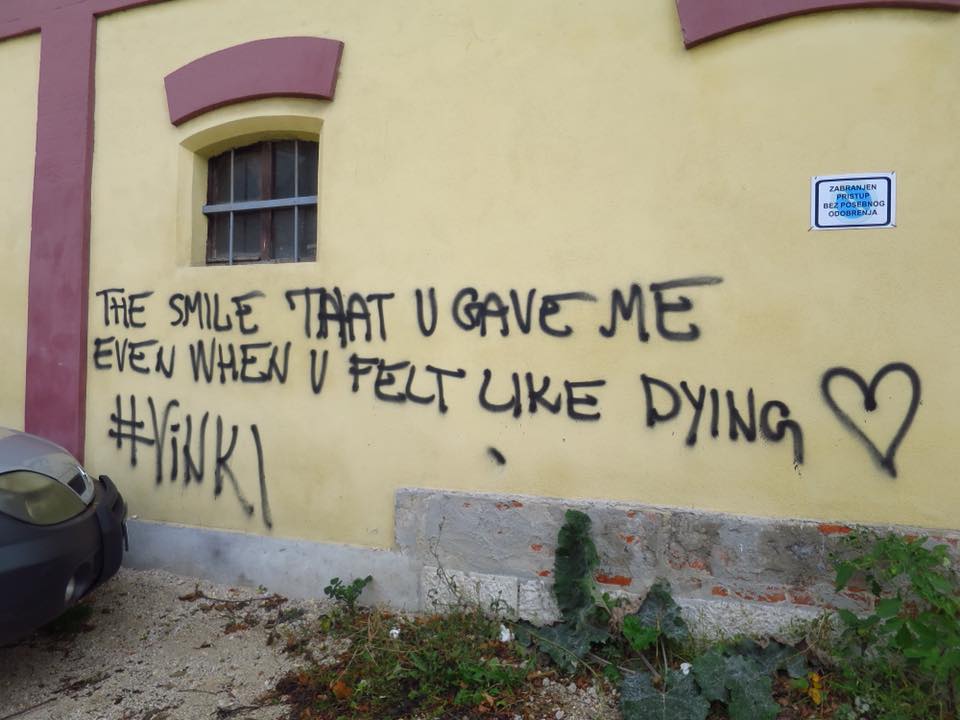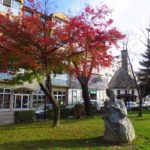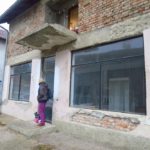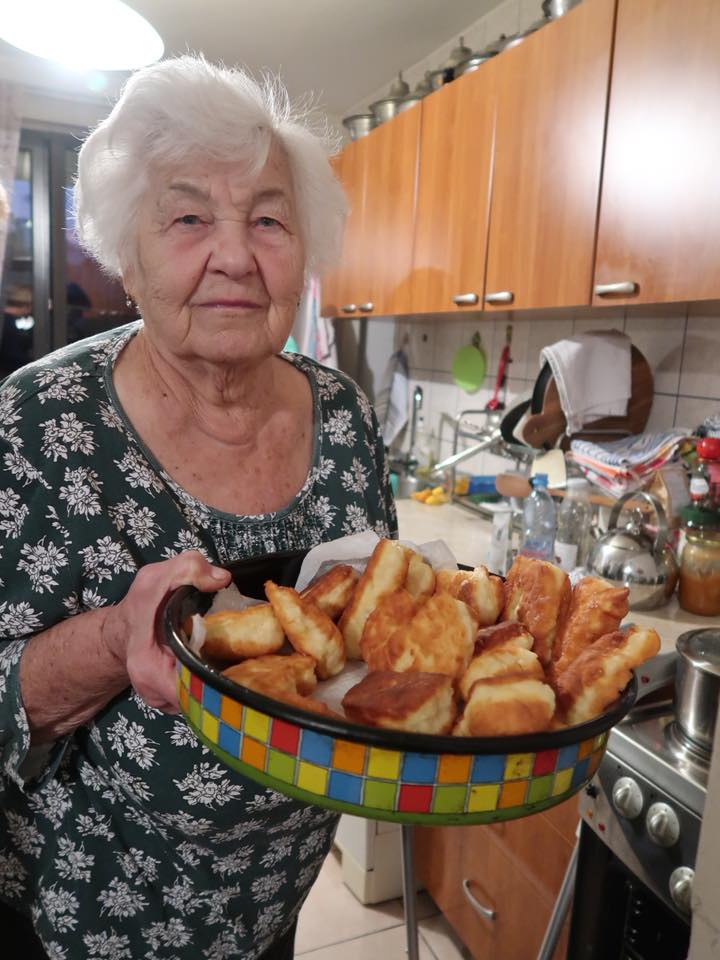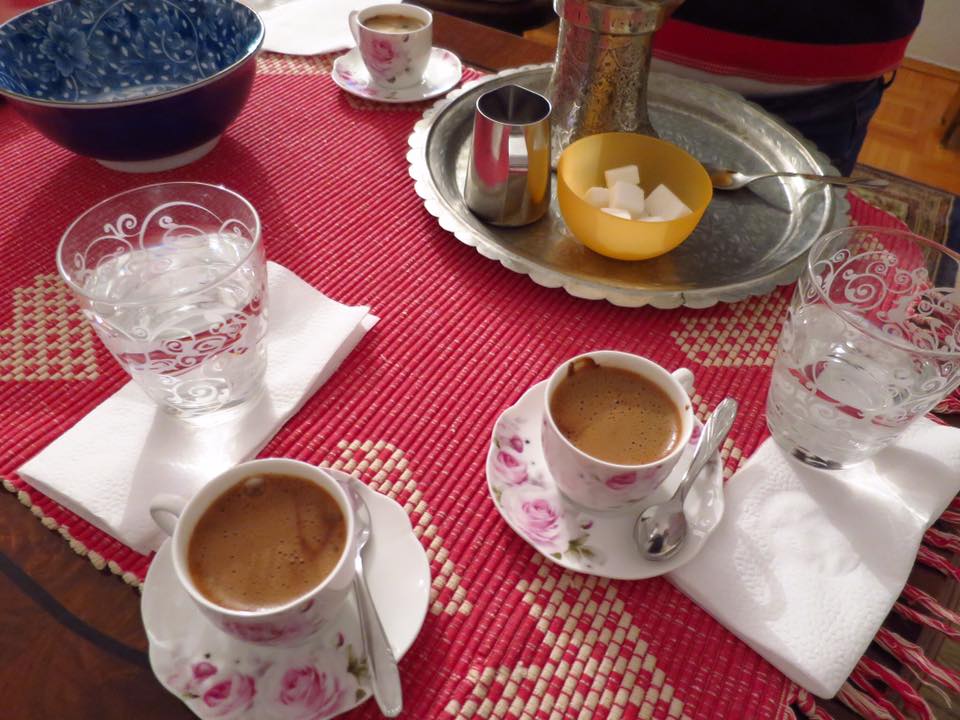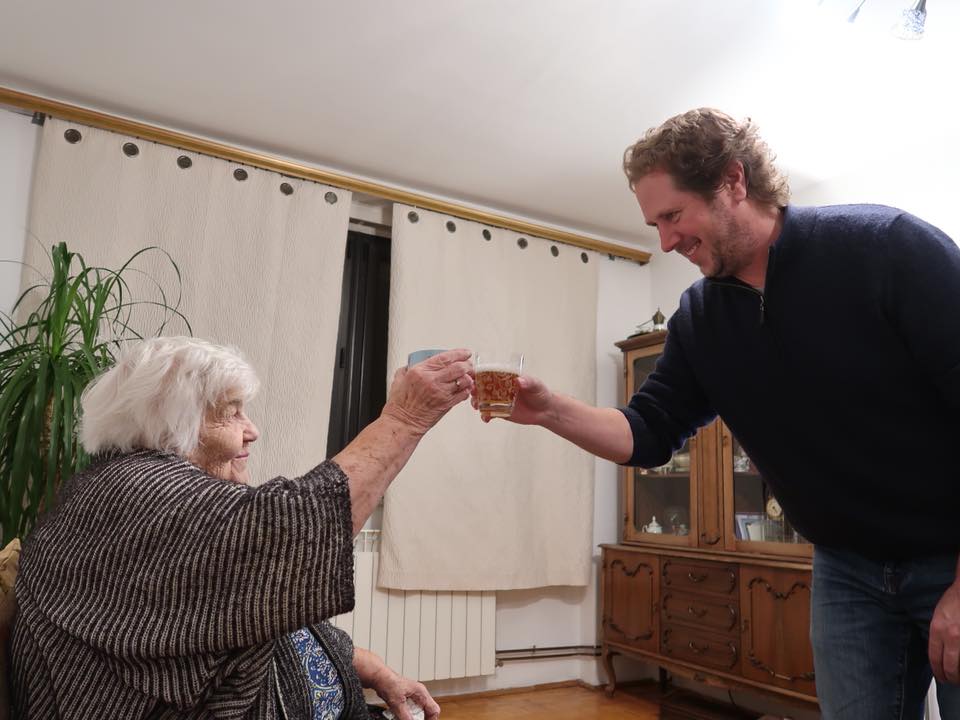At our request, our friend, Arna, suggested some places to which Kenric and I could contribute. Her list ranged from public kitchens to feeding animals at the zoo to visiting a war returnee who lives alone. The popular kitchen in Bascarsija (Old Town) is a well-established facility, and it is well-funded by Turkey. We were sure it will not miss our very small donation.
When we visited Arna and her Mom, she highlighted one of the places on her list; a new place in Travnik called Dobre Volje. “It means Goodwill and they feed anyone who walks in.” I couldn’t find any information in English online, but thanks to Facebook and Google translations, I learned that Dobre Volje had been a restaurant named Seher.
The couple who owned Seher converted it into a public dining space. The space is still set up like a restaurant which I thought was important. In a country turned upside down by war, any semblance of normality should be preserved. The couple works with an organization called Pomozi (www.pomozi.ba) and they accept donations by phone. Every call to 17001 costs the caller 2 KM (Bosnian Mark). That’s about €1 or USD $1.13 and it pays for one meal. I tried donating by phone, but it didn’t work with my U.S. line.
Dobre Volje
So, we made a trip to Travnik this morning. Beautiful Travnik is a tourist attraction in its own right. It’s about 1.5 hours west of Sarajevo. Earlier this morning, Arna called the municipality office for Dobre Volje’s address. She also made herself available in case we needed her to translate over the phone. The restaurant is in a beautiful setting accessible by a little gated bridge across the Lašva River. Two young girls were happily playing outside.
I opened the door and recognized the husband from the photos. I asked, “Do you speak English?” “No”, said a female voice. It was his wife seated at a table. I laughed and thought that was a good sign. We said we heard about their restaurant and wanted to learn more about it. The husband offered us coffee and a tour of the kitchen. We said yes to coffee. Her friend was translating for us although the couple understood what we were saying. I texted Arna that we had a translator. “Super.”
They asked where we’re from. “Originally, I’m from Malaysia. He’s from America. Now, we live in America.” The last part, not entirely true.
170 meals each day
The husband wanted to know how we heard about them. I said, “Our tour guide on our first visit, who has since become our friend, told us about them.” We learned that Dobre Volje serves 110 dine-in patrons and delivers 60 meals daily. They are open from 8 am to 4 pm.
In came a young man. The wife got up immediately and took a container from him and went into the kitchen. He introduced himself to Kenric who was standing next to him. “Hello, my name is Roslee.” The wife returned a much heavier container to Roslee.
Kenric asked about funding. Besides phone donations, they have a donation jar, and people either drop off food items at the restaurant or put food items into the collection bin at Konzum, a grocery chain. (Donors can also wire transfer to Pomozi or PayPal them at paypal1@pomozi.ba and specify “Dobre Volje”.)
“Good coffee!”
The husband-wife team does everything
There’s a cart with dirty dishes; I asked who washes them and who else helps at the restaurant. The wife said the friend helps them, but the friend said the couple does everything by themselves. That explains the pepperoni-size deep red mark on the husband’s neck. You might have seen similar marks on Michael Phelps’ back during the Olympics. Pleasantly surprised that someone in Bosnia and Herzegovina trusts traditional Chinese method of pain therapy, I asked, “You do Cupping too?”
The friend said “Hijama”, which I just learned is the Arabic term. The husband showed me a photo of him face down on a treatment table. There were many suction cups on his back and neck, tightly sucking out the “dead blood” and creating pepperonis. There is no actual blood; just what appear like bruises. The improved blood circulation guarantees a good night sleep and pain relief. Kenric told them I go for the same treatment too. The wife’s brother joined them. The husband left to meet a person at the door.
The wife shared a chocolate bar with us. I asked what made them convert the restaurant to this. The wife answered, “Because things are so bad. People have no money.” I felt her anguish. It’s the perfect reason. What else is needed to propel people to act other than a genuine need?
Our admiration and gratitude
We tried to discreetly count enough cash to cover two days’ worth of meals and the two cups of great coffee. I tried to explain how we arrived at the amount but it was unexpectedly emotional. It was more important for me to convey my gratitude to this selfless couple literally breaking their backs to serve others. I think I managed to say that Kenric and I really admire what they’re doing, and that we are very thankful there are people like them in this world.
The wife and I hugged. She wanted a photo with us. I have seen photos of their donors shared online with gratitude, and don’t believe we deserve such recognition. As we were leaving, I said I actually would like a photo of her with her husband. Right then, he walked in with some donated items. He thanked us, we thanked them and our wonderful translator. We shook hands, took some photos and sent a Facebook friend request.
Adisa, if you are reading this, Kenric and I want to tell you again that we really admire what you and your husband are doing. The world needs more people like you. Hvala puno!
